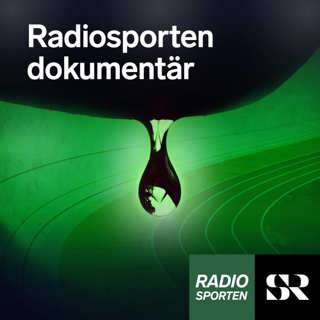
Paul McCartney: Beatles and beyond
The Bangles’ Susanna Hoffs celebrates the life and legacy of Sir Paul McCartney, from his Liverpool roots to Beatlemania and beyond. It is a journey that moves from the late 1950s spanning McCartney’s skiffle start with John Lennon in The Quarrymen, through to his long solo career, taking in Mersey Beat; the rise of the Fab Four to 1960s icons; and Wings’ 1970s success. Susanna learns how The Beatles could only have come from Liverpool, and how a visit to McCartney’s old grammar school led to a significant legacy: the formation of the Liverpool Institute of Performing Arts (LIPA). Joining Susanna are author of recent biography Fly Away Paul, Lesley-Ann Jones; veteran songwriter and member of 10cc, Graham Gouldman; LIPA founding principal and chief executive, Sir Mark Featherstone-Witty; Beatles historian and author, David Bedford; lifelong Beatles enthusiast Jean Catharell; BBC Radio Merseyside broadcaster Paul Beesley; Universal Music Group chairman and CEO Sir Lucian Grainge; plus two LIPA alumni - award winning composer Hannah Peel, and singer, songwriter and guitarist Natalie McCool. Giving the narrative an intimately familial contribution is McCartney’s younger brother, Mike McCartney.
31 Aug 45min

Scammed, robbed, traumatised – life after war for Russian soldiers
Russian soldiers were told that they would be the country's 'new elite' by President Putin. But many of them have reported being robbed and scammed out of the money that they earned fighting on the Ukrainian front lines. They also face mental health problems, and post-traumatic stress disorder after months or years at war, but suitable treatment is scarce and hard for them to find. BBC Russian's Sergei Goryashko has been looking into the soldiers who have been robbed and scammed, whilst Sofya Volyanova has spoken to the people in Russia attempting to treat soldiers for PTSD and depression. South Korea banned dog meat in the country last year, and the practice will be entirely phased out by 2027 ending a generations long practice. Hyunjung Kim of BBC Korean has been speaking to people affected by the ban and explains why it got put in place. This episode of The Documentary comes to you from The Fifth Floor, the show at the heart of global storytelling, with BBC journalists from all around the world. This is an EcoAudio certified production. (Photo: Faranak Amidi. Credit: Tricia Yourkevich.)
30 Aug 26min

Surviving the floods in Pakistan
Many parts of Pakistan have been experiencing intense rainfall in recent weeks. Since June, at least 800 people have been killed, homes and businesses lost, and thousands forced to evacuate their communities. In our conversations, we bring together people affected by this year’s monsoon to share their experiences. They include Saad, from Khyber Pakhtunkhwa province in northern Pakistan, who lost his family home and business: “Many of the houses of the people are completely destroyed and those remaining are full of mud and water,” he tells us. Although it only produces a small fraction of greenhouse gas emissions, scientific evidence suggests that Pakistan is particularly vulnerable to the effects of climate change. Three journalists share their stories of the flooding and their perspectives on the challenges the country faces. This episode of The Documentary, comes to you from BBC OS Conversations, bringing together people from around the world to discuss how major news stories are affecting their lives.
30 Aug 23min

Digitally preserving Armenia’s Christian heritage
In the ancient Yererouk Basilica in Armenia, near the border with Turkey, young engineers are using 3D digital technology to scan every part of the building. The aim is to recreate the church on a screen, in full-colour and in three dimensions. This is the digital preservation initiative, created by TUMO, the Center for Creative Technologies, based in Armenia’s capital Yerevan. It is training young Armenians to use new technology and also to connect them to their their 2000-year-old Armenian Christian heritage. In 2023, the country lost control of numerous important religious sites, when the province of Nagorno-Karabakh was taken over by neighbouring Muslim Azerbaijan. The mountainous enclave, known as Artsakh to Armenians, has long been a disputed territory between the two countries. Despite the new peace agreement signed recently, the province is still closed to Armenians. International observers using satellite technology say dozens of important Christian sites have been damaged or destroyed. Julia Paul travels to Armenia to find out how drones and lasers are helping young Armenians to connect to and preserve their ancient Christian heritage. This episode of The Documentary, comes to you from Heart and Soul, exploring personal approaches to spirituality from around the world.
29 Aug 26min

Student Predator: Surviving Zhenhao Zou
Earlier this year, Chinese student Zhenhao Zou was jailed for 24 years for drugging and raping ten women in the UK and China. He has been described by police as one of Britain’s “most prolific sexual predators”. After his trial, detectives said they feared he may have attacked 50 more women – many of whom are yet to be identified. Following connections on Chinese social media, reporter Wanqing Zhang from the BBC’s Global China Unit has been speaking exclusively to several of Zou’s victims, and a translator who has helped them, revealing shocking details about his crimes.
27 Aug 28min

The Facebook grifters making money off AI Holocaust victims
In Early June, the Auschwitz Memorial posted a warning about AI-generated Holocaust victims flooding Facebook. BBC Trending has since tracked several accounts pushing these false narratives and other pages posting so-called ‘AI slop’. The investigation has uncovered how these “digital creators” in Pakistan are just one part of a global economy of deception and emotional manipulation exploiting Meta payment models to profit from dubious content.
27 Aug 21min

Suing 'Alligator Alcatraz': Immigration in the US
President Trump has called illegal immigration an “invasion” and what has followed is a huge rise in the arrest and detention of migrants. Some have ended up in ‘Alligator Alcatraz’ - an immigration detention centre that was speedily constructed in June, deep in the Florida swampland. ‘Alligator Alcatraz’ is now subject to a number of lawsuits. Immigration attorneys say they have not been granted proper access to clients inside; environmentalists claim the detention centre is harming the protected wetlands that surround it. Within the last few days, a judge has ruled that much of the detention centre must be dismantled and no new migrants taken there. It is a preliminary ruling and the government immediately filed an appeal. Josephine Casserly follows immigration lawyer Mich Gonzalez as he attempts to meet his client inside the detention centre. This episode of The Documentary comes to you from Assignment, investigations and journeys into the heart of global events.
26 Aug 26min

Adeju Thompson: Taking fashion label Lagos Space Programme to the world
Adeju Thompson, the founder and creative director behind the Nigerian fashion label Lagos Space Programme, attempts to establish the label on the global fashion scene. Lagos Space Programme blends Yoruba heritage (notably Adire dyeing) with queer and futurist aesthetics, taking inspiration from Lou Reed, traditional Ife sculptures, and the photography of Rotimi Fani-Kayode and Robert Mapplethorpe. Thompson talks about his dedication to slow fashion, gender-fluid creations, and detailed artisan craftsmanship, blending traditional techniques with contemporary designs. Tayo Popoola follows Thompson to Paris where he unveils his collection, based on the idea of "rock'n'roll consciousness". We then join him at his studio in Surulere, Lagos where he discusses his new designs for 25/26.
25 Aug 26min





















